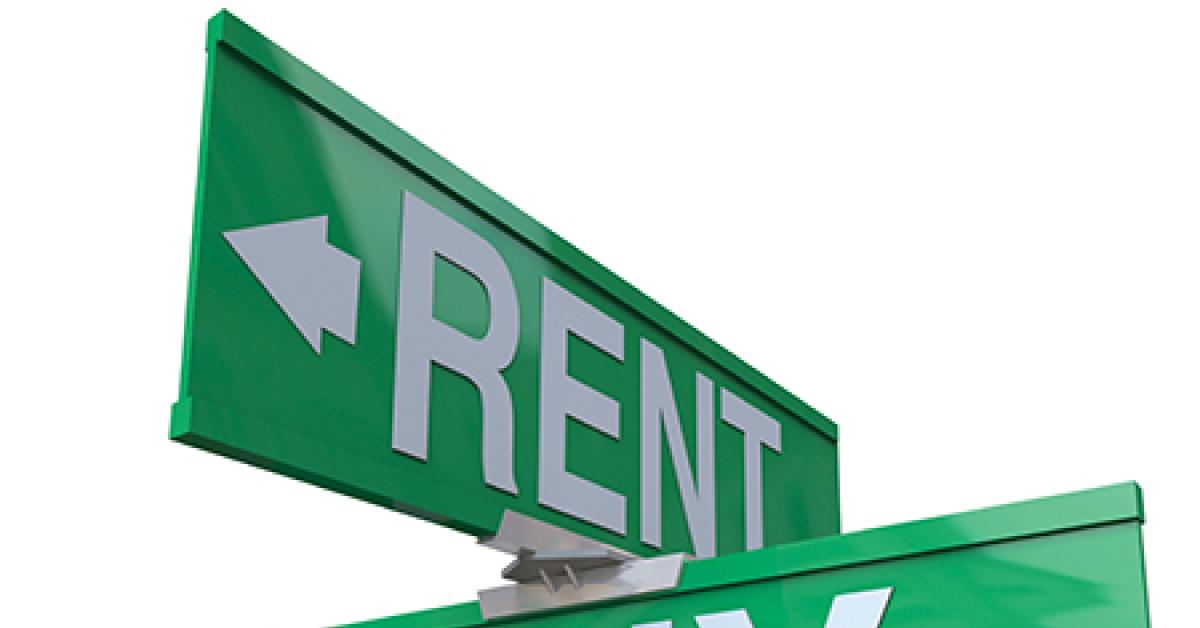LLOYDMINSTER, Saskatchewan — For the dry cleaning plant owner who operates from a leased premises and the lease is about to expire, the question arises as to whether it is better to own or lease your plant’s real estate. However, when investment capital is limited, continuing to rent is the only option. For the established operator who has the wherewithal, if the business has outgrown the plant’s size or the landlord demands are unreasonable, it becomes a matter of weighing the options of leasing, buying or building, and selecting which is best.
Most would say that owning is the only way to go. Yet, the big box stores and many industrial concerns lease. Maybe they are telling us something. As there are ups and downs to both options, it becomes one of determining whether the benefits of ownership outweigh the disadvantages.
Owning vs. leasing your plant’s real estate is not about occupancy. You can always buy, build or rent the plant space you need. It is all about the wisest employment of available capital. Money is not made by owning an asset, but by the use of it.
LOOK BEFORE YOU LEAP
With leasing, although making the landlord rich, the big question really lies with the requirement for personal guarantees and with other financial commitments. Are you prepared to assume this much debt? If mortgaging the real estate and also leasing or financing equipment, how will your balance sheet, credit lines, and borrowing ability be affected? Although leasing has some disadvantages, it provides 100% leverage on your dollar and 100% of the rent is tax deductible. When mortgaging, it is only the interest.
Few investments provide better longer-term return on your capital than real estate. Equity increases through mortgage pay-down and value appreciation. However, it is not like the stock market or mutual funds and having the ability to count your money every day. Real estate is landlocked; it cannot be moved to a more favorable location. There are not buyers on every corner waiting to snap it up, or bail you out of a bad deal. If you pay too much, or finance too much at a high interest rate, it could be a loser. Leverage works both ways. Know that real estate is a long-term investment, the returns on which should be compared to other long-term investments.
SEPARATE COMPANY OWNERSHIP
Owned real estate should never be considered as a part of the plant’s business, but as a separate investment, owned by a separate company and leased to the dry cleaning business. Although this could require some income tax considerations, it protects your investment against any business-oriented liability. Rent to yourself at market rate, the same as if you were leasing from a third party. The IRS will smile on you. On paper, consider yourself as a tenant. Separate property and dry cleaning plant expenses. Compare the returns with other investments, and then determine if this is the best way to go.
THREE CONSIDERATIONS
When you buy or build, envision not only your own requirements but the longer-term potential of the property. There are three important considerations:
1. Your dry cleaning plant’s occupancy, with the most important criteria being how the property fits in with your present needs and your potential growth.
2. Look at it from the perspective of a future buyer, as you may wish to resell the property someday. The more adaptable it is for other uses, the better the price you will receive. Only select a property (if buying) or a location (if building) that will be in demand.
3. You may wish to rent out the property in the future. Accordingly, ensure that that property is adaptable and can now, and in the future, provide a satisfactory return comparable with other investments. Avoid the temptation to build inflation into your calculations. Use constant dollars.
CLARIFY YOUR OBJECTIVES
Only buy after you have considered all factors and deciding that owning the property is preferable to leasing. Good real estate is one of the world’s better long-term investments, yet is not without its shortcomings. Develop a strategy that will enable you achieve your objectives and overcome your constraints. Which is most cost-effective: owning or leasing? Should you own your own real estate? Yes, no, maybe, sometimes, and all with qualifications.
Information in this article is provided for educational and reference purposes only. It is not intended to provide specific advice or individual recommendations. Consult an attorney or tax adviser for advice regarding your particular situation.
Have a question or comment? E-mail our editor Dave Davis at [email protected].
